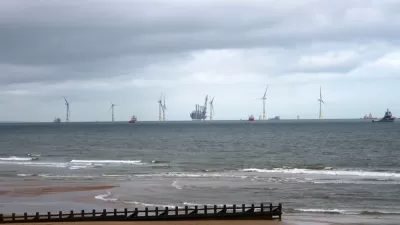The unprecedented climate settlement compels the state's transportation department to achieve zero emissions by 2045, marking a significant victory for climate justice and constitutional rights.

A groundbreaking legal settlement in Hawaii, driven by 13 young climate activists, mandates the state's Department of Transportation to achieve zero emissions across all transportation modes by 2045. The settlement emerged from the 2022 lawsuit, Navahine F v. Hawaii Department of Transportation, which argued that the state's prioritization of fossil fuel-based transportation projects violated the constitutional rights of the plaintiffs to a clean and healthful environment. Hawaii Governor Josh Green lauded the activists for mobilizing the state toward aggressive climate action, emphasizing the importance of this legally binding commitment to transforming Hawaii's transportation infrastructure.
The historic agreement will require Hawaii officials to devise a comprehensive roadmap to fully decarbonize ground, sea, and inter-island air transportation. The legal settlement is a significant win in the broader movement for Indigenous and youth-led climate activism, particularly as it integrates young people into advisory roles to ensure the state's adherence to the zero-emissions target. This effort is part of a wider national push for food and climate sovereignty, with states like Montana achieving similar legal victories that underscore the constitutional right to a clean environment.
Despite Hawaii's progressive climate policies, including goals to decarbonize its power sector by 2045 and make state vehicles carbon-free by 2035, recent years have seen setbacks in emissions reductions. The new settlement, however, is expected to catalyze substantial progress by holding the state accountable through judicial oversight until the zero-emission goals are met. The cooperative nature of this agreement, involving diverse stakeholders from government officials to young activists, exemplifies a unified approach necessary for addressing the climate crisis in Hawaii's unique island context.
FULL STORY: Youth activists win ‘unprecedented’ climate settlement in Hawaii

Alabama: Trump Terminates Settlements for Black Communities Harmed By Raw Sewage
Trump deemed the landmark civil rights agreement “illegal DEI and environmental justice policy.”

Study: Maui’s Plan to Convert Vacation Rentals to Long-Term Housing Could Cause Nearly $1 Billion Economic Loss
The plan would reduce visitor accommodation by 25% resulting in 1,900 jobs lost.

Why Should We Subsidize Public Transportation?
Many public transit agencies face financial stress due to rising costs, declining fare revenue, and declining subsidies. Transit advocates must provide a strong business case for increasing public transit funding.

Paris Bike Boom Leads to Steep Drop in Air Pollution
The French city’s air quality has improved dramatically in the past 20 years, coinciding with a growth in cycling.

Why Housing Costs More to Build in California Than in Texas
Hard costs like labor and materials combined with ‘soft’ costs such as permitting make building in the San Francisco Bay Area almost three times as costly as in Texas cities.

San Diego County Sees a Rise in Urban Coyotes
San Diego County experiences a rise in urban coyotes, as sightings become prevalent throughout its urban neighbourhoods and surrounding areas.
Urban Design for Planners 1: Software Tools
This six-course series explores essential urban design concepts using open source software and equips planners with the tools they need to participate fully in the urban design process.
Planning for Universal Design
Learn the tools for implementing Universal Design in planning regulations.
Smith Gee Studio
Alamo Area Metropolitan Planning Organization
City of Santa Clarita
Institute for Housing and Urban Development Studies (IHS)
City of Grandview
Harvard GSD Executive Education
Toledo-Lucas County Plan Commissions
Salt Lake City
NYU Wagner Graduate School of Public Service





























